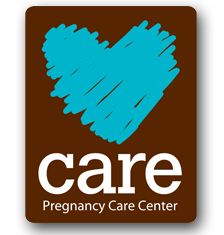Abortion is a serious procedure that terminates a pregnancy. If you’re considering abortion, it’s essential to learn all you can to protect your health and ensure you’re making an educated decision.
This article will highlight the basics you need to know about medical and surgical abortion. However, if you want more information, support, and free resources in a safe environment, contact Pregnancy Care Center today to schedule a free, confidential appointment. Note that the Pregnancy Care Center does not perform or refer for abortion. This information is for educational purposes only.
How Abortion Works
There are two types of abortion: medical, also called the “abortion pill,” and surgical.
Medical Abortion
Medical abortion involves taking two drugs: mifepristone and misoprostol.
- Mifepristone: This medication blocks the hormone progesterone, which is essential for maintaining pregnancy. Without progesterone, the lining of the uterus breaks down, and the pregnancy cannot continue.
- Misoprostol: Taken 24-48 hours after mifepristone, misoprostol induces contractions to expel the pregnancy from the uterus.
After taking the abortion drugs, you will experience vaginal bleeding and abdominal cramping. Some women have reported that the pain is unexpectedly severe.
Medical abortion is only FDA-approved if your pregnancy is 10 weeks gestation or under.
Risks of medical abortion include:
- Incomplete abortion, which is when parts of the terminated pregnancy remain in your uterus
- An ongoing pregnancy if the procedure doesn’t work
- Heavy and prolonged bleeding
- Infection
- Fever
- Digestive symptoms such as upset stomach
Surgical Abortion
Surgical abortion involves going to a clinic, where the abortion provider will dilate your cervix so that surgical instruments and a strong suction device can enter your uterus to remove the pregnancy (later in pregnancy, forceps may be used).
Risks of surgical abortion include:
- Uterine perforation, which is when one of the surgical instruments pokes a hole in your uterus
- Uterine scarring, which can cause painful periods or future infertility
- Cervical damage
- Infection
Protect Your Health
Before seeking an abortion, it’s critical to get an ultrasound to determine what abortion procedure you’re eligible for, as well as the location and viability of your pregnancy.
At Pregnancy Care Center, we offer a free, limited ultrasound referral and a safe, supportive space to ask questions and learn more about your pregnancy options.
Contact us today to schedule your free, confidential appointment.
We offer accurate information about all your pregnancy options; however, we do not offer or refer for abortion services. The information presented on this website is intended for general education purposes only and should not be relied upon as a substitute for professional and/or medical advice.
